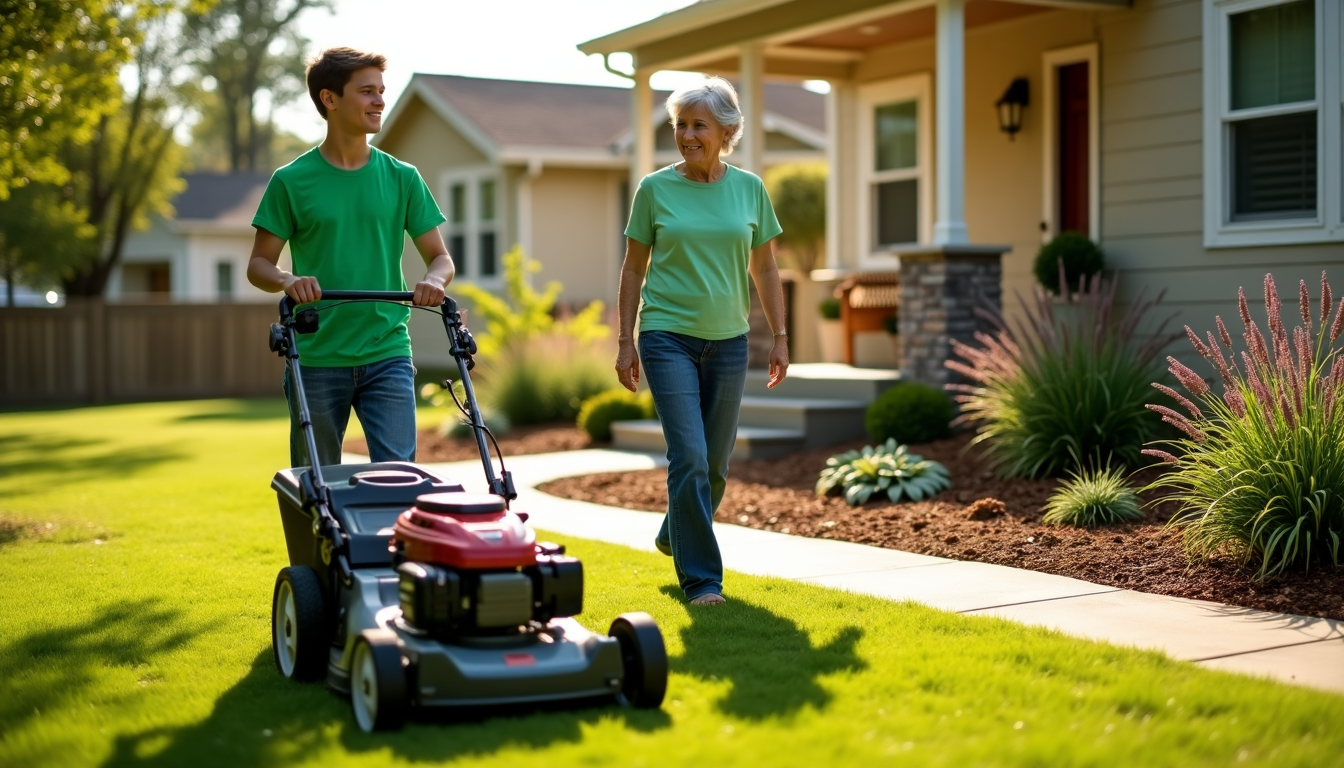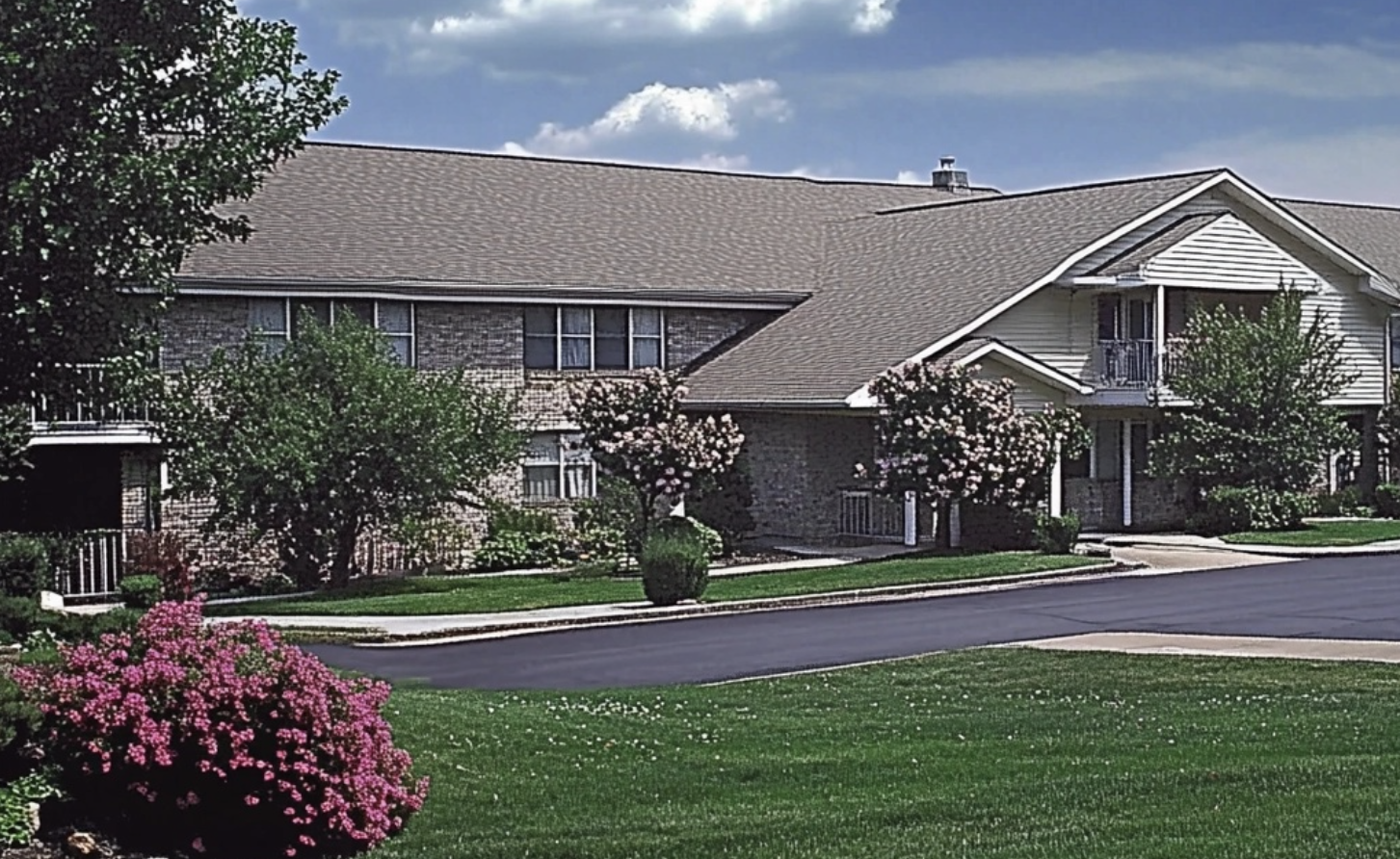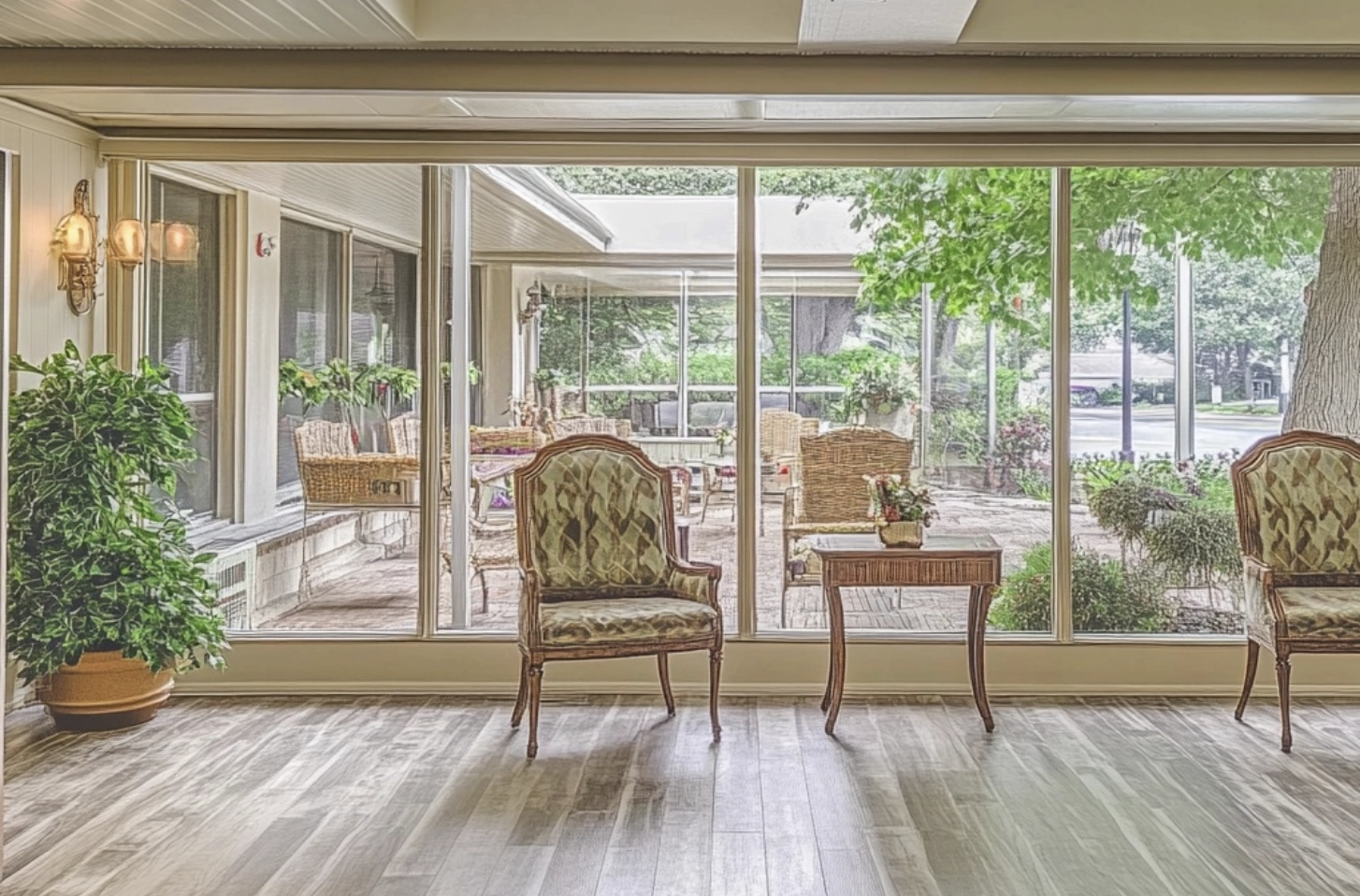Seniors who neglect yard maintenance face potentially costly fines from local authorities, a growing problem as physical limitations and financial constraints make lawn care increasingly difficult for older homeowners.
The challenge of maintaining a yard extends beyond aesthetics. For many seniors, traditional yard work poses serious safety risks from physical strain, while equipment costs burden already limited fixed incomes. Statistics show many older adults struggle with these maintenance tasks as mobility decreases and health concerns increase.
Several programs offer solutions for elderly homeowners seeking yard assistance. I Want To Mow Your Lawn Inc., a registered nonprofit, provides completely free lawn services to seniors over 65. Meanwhile, Yard Angels has operated since 2012, connecting volunteers with older adults needing yard maintenance help. For those preferring professional services, numerous companies offer senior discounts, with some providing up to 50% off first-time services.
This article examines various yard maintenance options available to seniors, from no-cost volunteer programs to budget-friendly professional services. It explores how older homeowners can maintain their properties safely without compromising their financial security or physical wellbeing.
Yard Work Challenges for Seniors
Yard maintenance becomes increasingly difficult as people age, transforming what may once have been an enjoyable hobby into a potentially dangerous obligation. Physical changes, financial limitations, and safety concerns all contribute to making lawn care particularly challenging for older homeowners.
Physical limitations affecting yard maintenance
Studies show gardening and yard work frequently cause low-to-moderate pain for seniors, particularly lower back pain during bending activities. As mobility decreases with age, routine tasks like mowing lawns or pulling weeds become increasingly difficult to perform safely.
Seniors typically face several physical barriers when attempting yard work:
- Decreased strength making equipment handling difficult
- Reduced flexibility limiting bending and kneeling
- Balance problems increasing fall risks
- Joint pain making repetitive motions painful
- Quicker onset of fatigue during physical activities
Research examining older adults’ homes found 34% had obstructed or broken paths and 47% had problematic paving hindering mobility. These obstacles make navigating one’s own garden both difficult and dangerous, creating situations where routine maintenance becomes nearly impossible without assistance.
Financial constraints on fixed incomes
About 40% of older Americans rely exclusively on Social Security income, averaging approximately $1913 monthly. This limited income makes regular lawn care services financially burdensome for many seniors.
In Massachusetts, 63% of senior households face economic insecurity, with even higher rates (70%) among single senior households. This financial pressure forces difficult choices between essential expenses like medications, groceries, utilities, and yard maintenance.
The NCOA reports maintaining older homes is particularly challenging for seniors, with 11.2 million older adult households considered cost-burdened in 2021. Many seniors worry about becoming burdens to family members while simultaneously concerning themselves with costly fees from private gardening contractors.
Safety risks with traditional lawn care
Safety concerns present additional challenges beyond physical and financial limitations. Research indicates 32% of seniors’ homes have unsafe steps and stairs, creating hazardous conditions for yard work. Older adults face higher fall risks outdoors where uneven surfaces and obstacles increase danger.
Additional safety issues include:
Heat-related illnesses from sun exposure, as seniors are more susceptible to heat exhaustion and dehydration. Older adults’ thinning skin increases vulnerability to cuts and sunburn. Physical strain from yard equipment can worsen existing health conditions.
Equipment like power mowers, trimmers, and pruning tools demands strength, balance, and quick reflexes—attributes that naturally diminish with age. Climbing ladders for tree pruning or gutter cleaning presents significant fall risks that can result in serious injuries for older adults.
These combined challenges make finding affordable yard work help for seniors not merely a convenience but a necessity for maintaining safety, property values, and quality of life. The following sections explore resources available to help seniors overcome these yard maintenance obstacles.
Free Yard Work Programs for Seniors
Numerous national programs provide free yard maintenance for seniors struggling with outdoor tasks. These organizations offer alternatives to letting lawns become overgrown or paying for expensive professional services, helping maintain property values while preventing potential code violations.
Nonprofit organizations offering yard help
Several dedicated nonprofits specifically address seniors’ yard work challenges. I Want To Mow Your Lawn Inc. operates as a registered 501(c)(3) nonprofit connecting homeowners with landscaping volunteers across the country. Founded during the 2020 COVID-19 pandemic, this organization delivers free lawn care to seniors over 65, military veterans, disabled individuals, and those experiencing financial hardships. Their process involves handling inquiries from beneficiaries or their caretakers, then locating nearby volunteers.
Yard Angels, established in 2012, follows a similar model by matching volunteers with older adults needing yard assistance. Their services include raking, weeding, mowing, and trimming trees and bushes. Reports indicate many seniors become emotional when this significant burden is lifted from their shoulders.
The Fort Worth Mobile Tool Shed takes an alternative approach by providing the equipment rather than the service itself. This community tool-sharing program gives residents free access to essential yard equipment regardless of income level.
Volunteer groups that assist elderly homeowners
Beyond established nonprofits, various volunteer organizations provide yard help. Raising Men & Women Lawn Care Service recruits young people to assist seniors, veterans, disabled individuals, and single parents with lawn maintenance. Their innovative “50 Yard Challenge” encourages children to mow 50 lawns for free, earning new lawn equipment upon completion.
Local volunteer networks commonly form through:
- Scout troops and youth groups
- Veterans organizations
- Church and faith-based communities
- Civic groups like Kiwanis, Lions Clubs, and Rotary
Many cities develop their own municipal programs. Pittsburgh created its City Cuts lawn service, providing free maintenance for veterans, residents 62 and older, and disabled individuals lacking financial or social resources for lawn care. The program served more than 950 seniors during its initial year of operation.
How to qualify for free yard cleanup services
Eligibility for these free services typically depends on meeting specific criteria and volunteer availability in your area. I Want To Mow Your Lawn primarily serves seniors over 65, veterans, disabled individuals, and those facing financial difficulties. They prioritize requests based on volunteer availability, timing, and demonstrated need.
Accessing these services generally requires:
- Submitting a request through the organization’s website using their intake form
- Providing detailed information about specific needs and location
- Waiting for matching with a nearby volunteer
Alternatively, many programs can be accessed by:
- Contacting local senior centers for referrals
- Reaching out to your Area Agency on Aging
- Calling 211 for connection to local resources
- Inquiring with nearby schools about student volunteer programs
Service availability varies significantly by location. While these programs exist nationwide, rural areas typically have fewer volunteers than urban centers. Early applications and scheduling flexibility improve chances of receiving assistance.
These programs aim to do more than maintain yards—they reduce stress, prevent code violation fines, and improve quality of life for seniors who wish to remain independently in their homes.
Finding Affordable Professional Lawn Care
Professional lawn care services provide practical alternatives when free yard maintenance programs aren’t available. Many companies recognize seniors’ financial limitations and offer special pricing that makes regular yard care more manageable for those living on fixed incomes.
Companies offering senior discounts
Affordable lawn care options often include businesses with age-based discounts. While major national lawn companies rarely advertise senior-specific discounts, many local landscaping businesses provide reduced rates for older customers. Seniors should directly ask about senior discounts when contacting potential service providers.
Several companies offer general discounts benefiting all customers:
- TruGreen provides 50% off first service with lawn, tree, shrub, or mosquito applications
- Lawn Doctor offers 50% off first lawn service
- Advanced Lawn Solutions gives seniors and military veterans a 5% discount on lawn care programs
- Just Right Lawns provides seniors $25 off their first mow with recurring service purchase
Seasonal service packages that save money
Seasonal approaches make yard care more affordable beyond specific discounts. Many companies offer lower rates during off-peak months, helping seniors save money while maintaining quality yard care.
Loyalty programs provide another cost-saving option, allowing older customers to accumulate savings over time. Bundled service packages typically cost less than individual services purchased separately, often including comprehensive care like mowing, tree and shrub maintenance, and pest control customized to seniors’ specific needs.
Questions to ask before hiring a lawn service
Seniors should ask these essential questions before committing to any yard maintenance service:
- Experience and expertise: How long have you been in business? What are your company’s specialties?
- Team qualifications: What’s the expertise level of your team? Who will be my specific technician?
- Program details: What treatments are included in your programs? What might be potential extras?
- Safety protocols: Are your products safe? Do you primarily spray lawns or use granular products?
- Communication process: How do you handle questions or concerns? How quickly do you respond?
- Service guarantees: How do you address property damage if it occurs?
- Pricing transparency: What does your service cost? Are packages available? Are there hidden fees?
Finding reliable yard work help requires comparing services, reading customer reviews, and asking appropriate questions to ensure quality care at prices matching seniors’ budgets.
Community-Based Solutions for Yard Help
Community-based initiatives provide personalized yard assistance for seniors in their own neighborhoods, beyond what national nonprofits and professional services offer. These grassroots approaches address practical yard maintenance needs while often building meaningful local connections.
Working with local schools and youth groups
Youth-driven programs deliver affordable lawn care while teaching valuable skills to young participants. The Raising Men & Women Lawn Care Service challenges participants 17 and under to mow 50 lawns free for elderly homeowners, disabled individuals, veterans, and single parents. This initiative has expanded to eight countries with thousands of young people making a difference “one lawn at a time”.
The Lawn Academy creates similar connections between youth ages 11-19 and seniors, veterans, and individuals with special needs. Their services go beyond basic yard maintenance to include winterizing homes, food delivery, and distributing warm clothing. This mentoring approach develops participants’ academic, business, and life skills while serving community needs.
Neighborhood assistance programs
Local community initiatives often target specific yard maintenance needs for seniors. The CHORE program assists individuals struggling with heavy housework, yard work, sidewalk maintenance, and minor home repairs. These services help older adults maintain independence and dignity while aging in place.
Serving Our Seniors, operating since 1981, provides seasonal lawn maintenance through their Helping Hands program. Currently, more than 30 seniors await having their lawns “adopted” – creating opportunities for individuals, families, or community groups to support elder residents.
Faith-based organizations providing yard care
Religious institutions frequently offer yard cleanup services through outreach ministries. Their volunteer programs typically help with:
- Mowing, trimming, and basic landscaping
- Seasonal cleanup
- Small tree and shrub maintenance
The United Methodist Church runs both the Helping Hands program and Good Neighbor Network connecting seniors with yard work volunteers. The Salvation Army deploys volunteers through their Neighbors in Need initiative, focusing particularly on low-income seniors.
Many churches promote their yard maintenance assistance through local caregiver services, Departments of Social Services, and Area Agencies on Aging. Faith in Action provides homebound elderly with trained volunteers delivering no-cost services, including minor home and yard maintenance.
Evaluating and Hiring Reliable Help
Finding dependable yard work help represents only half the challenge for seniors; ensuring quality service demands careful evaluation and thoughtful hiring practices.
Checking references and reviews
Past performance typically indicates future service quality. Seniors evaluating potential lawn care providers should request references from recent clients—preferably from the past year—as their experiences remain relevant. References with established history can outline specific duties performed.
When contacting references, seniors should ask:
- “How long did this person or company work for you?”
- “Were they reliable and consistently on schedule?”
- “How did they handle unexpected problems or emergencies?”
- “Would you hire them again?”
Online reviews offer additional perspective. Companies maintaining 4.7-star average ratings generally provide consistent quality service. Seniors should remain cautious about providers with exclusively perfect reviews or those lacking any online presence.
Understanding service agreements
A detailed service agreement protects both parties. Professional lawn services typically offer consistent weekly schedules—same day, same time—with professional-grade products and equipment included. Legitimate companies carry liability insurance and may belong to professional organizations.
Seniors should never pay providers upfront. Instead, they should establish detailed estimates with payment schedules clearly outlined. Additional work requires written documentation of changes. Seniors should request clarity regarding inclement weather policies and how schedule changes are handled.
What to do if you’re not satisfied with the service
Seniors should address concerns directly and promptly. Most professional lawn care services correct issues immediately when properly notified. Documenting all communication and providing reasonable timeframes for correction helps resolve problems efficiently.
For persistent problems, seniors should review their contracts for termination clauses, which typically include 30, 60, or 90-day notice periods. Some contracts contain “termination for cause” provisions requiring documented complaints with set correction periods.
Building relationships with trustworthy service providers ultimately creates the best outcomes for older homeowners. Establishing trust facilitates constructive problem-solving while ensuring yards receive consistent, quality maintenance.
Conclusion
Yard maintenance shouldn’t become a burden for elderly homeowners. Despite significant physical and financial challenges seniors face, multiple affordable options exist to keep their properties well-maintained and safe.
Nonprofit organizations like I Want To Mow Your Lawn Inc. and Yard Angels provide free maintenance services that offer essential relief for many older homeowners. Professional lawn care companies frequently offer substantial senior discounts, making regular maintenance more affordable for those on fixed incomes. Community-based programs through schools, youth groups, and faith-based organizations create additional support networks through volunteer assistance.
Seniors must carefully evaluate potential service providers regardless of whether they choose free or paid help. Checking references, understanding service agreements, and knowing how to address service concerns ensures reliable, long-term yard maintenance solutions. These steps help older adults maintain their independence and property values while protecting both their health and financial security.
FAQs
Q1. What are some free yard work programs available for seniors? Several nonprofit organizations offer free yard maintenance for seniors, including I Want To Mow Your Lawn Inc. and Yard Angels. These programs connect volunteers with older adults who need assistance with tasks like mowing, raking, and general yard upkeep.
Q2. How can seniors find affordable professional lawn care services? Many lawn care companies offer senior discounts or seasonal service packages that can make yard maintenance more affordable. It’s advisable to ask about special pricing for seniors and compare different service providers to find the best deal.
Q3. Are there community-based solutions for senior yard help? Yes, many communities have local programs that provide yard assistance for seniors. These can include initiatives run by schools, youth groups, neighborhood associations, and faith-based organizations. Contacting local senior centers or community service organizations can help you find these resources.
Q4. What should seniors consider when hiring a lawn care service? When hiring a lawn care service, seniors should check references and reviews, understand the service agreement thoroughly, and ask about experience with senior clients. It’s also important to inquire about safety protocols, communication processes, and how the company handles any potential issues.
Q5. How can seniors ensure they’re getting reliable yard work help? To ensure reliable yard work help, seniors should clearly communicate their needs, establish a detailed service agreement, and regularly evaluate the quality of work. If issues arise, it’s important to address them promptly with the service provider and document all communications.












